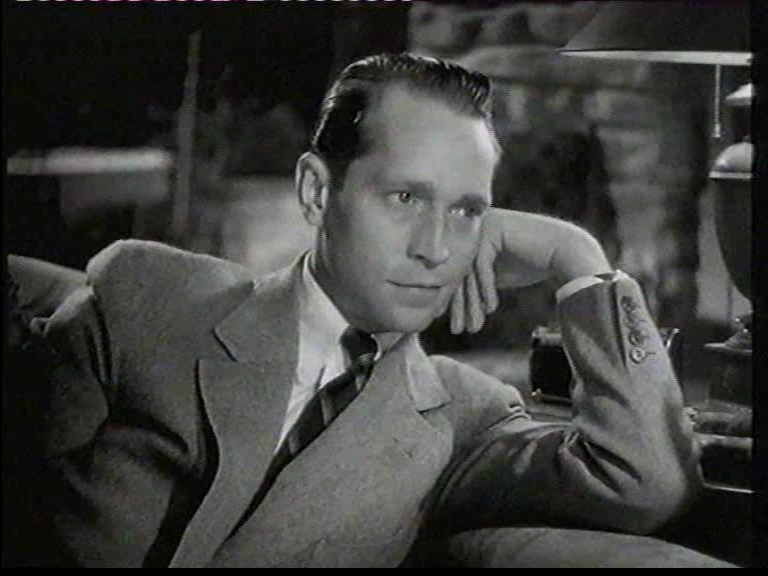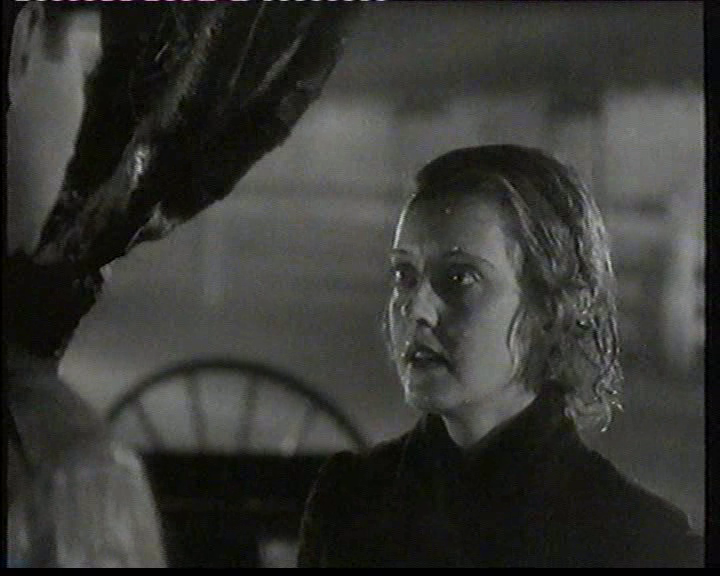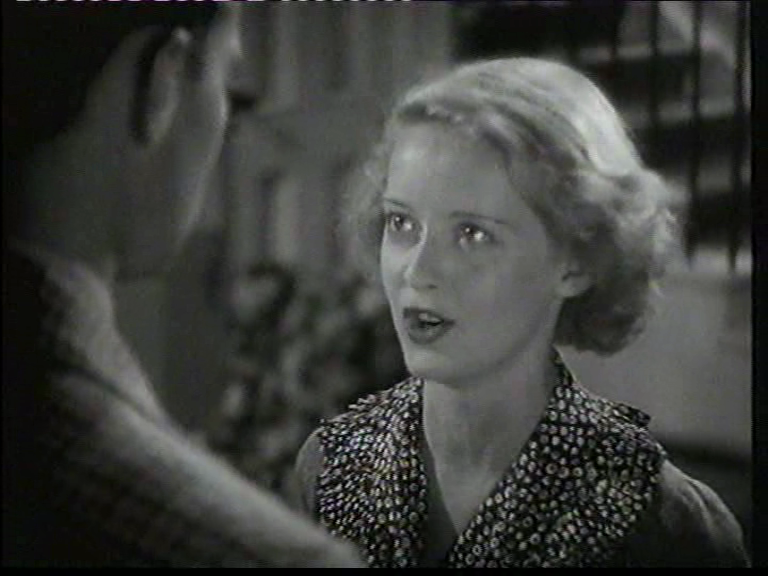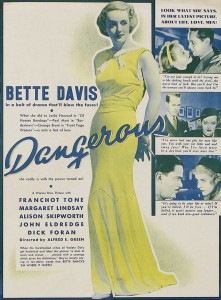|
Genres, Themes, Actors, and Directors:
- Actors and Actresses
- Alcoholism and Drug Addiction
- Bette Davis Films
- Femmes Fatales
- Franchot Tone Films
- Has-Beens
Review:
Bette Davis’s Oscar-winning performance in Dangerous may be one of the first instances of an Academy Award being given to an actor or actress as a consolation prize for not winning the previous year, when he or she more clearly deserved it. In this case, most (including Peary) believe that Davis should have won an Oscar instead for her breakthrough performance in Of Human Bondage (1934), which is certainly the much better film. Indeed, Dangerous — based on Laird Doyle’s story “Hard Luck Dame” — remains a poorly written and conceived melodrama with a ludicrous ending and no clear sense of who to root for or why. Tone comes across like the ultimate fool:

From the moment he naively believes he can bring a beautiful but notoriously damaged young actress:

… back to his country home for the weekend and not cause potential risk to his happy engagement with Lindsay, we lose all respect for him, making it difficult to care much about either him or the story’s resolution. Yet Davis’s performance shines through the dross of the narrative, presenting us with a fully dimensional, deeply flawed femme fatale with a host of “dangerous” demons in her closet. She alone makes this film worth seeking out for a one-time look.
Redeeming Qualities and Moments:
- Bette Davis as Joyce Heath (nominated by Peary as one of the Best Actresses of the Year in his Alternate Oscars)

Must See?
No, though it’s worth a look simply for Davis’s Oscar-winning performance.
Links:
|




One thought on “Dangerous (1935)”
Not a must.
Simply put, a really really bad movie – nicely directed by Alfred Green, but who cares? The script is an annoying mixture of overly/awkwardly written and too silly for words. Worst of all, not even the great Davis can make this one worth a watch – she puts her all into this ridiculous, often unintentionally funny crap (except when even she seems to be making the little effort the script deserves) but she’s putting her all into something that’s just not there, so she’s not particularly good. Davis’ character’s ultimate-decision sequence (which includes a pale imitation of her role in ‘Of Human Bondage’) is the most laughable scene in the film.
In all honesty, Davis only grabs what little genuine attention she can in the film’s last few minutes. Yes, most everyone believes her Oscar was a consolation prize. What an awful thought – to have an Oscar on your mantel for THIS!
Lindsay gives the best performance (in a thankless role).
Odd thing: In one scene, Tone talks with a guy re: backing the one play Davis longs to succeed in. The potential backer claims to have “great respect for the script” yet also claims that the play would immediately bomb without the proper leading lady. Really? A script worthy of that much respect would still fail without the best available star? How does that work exactly?